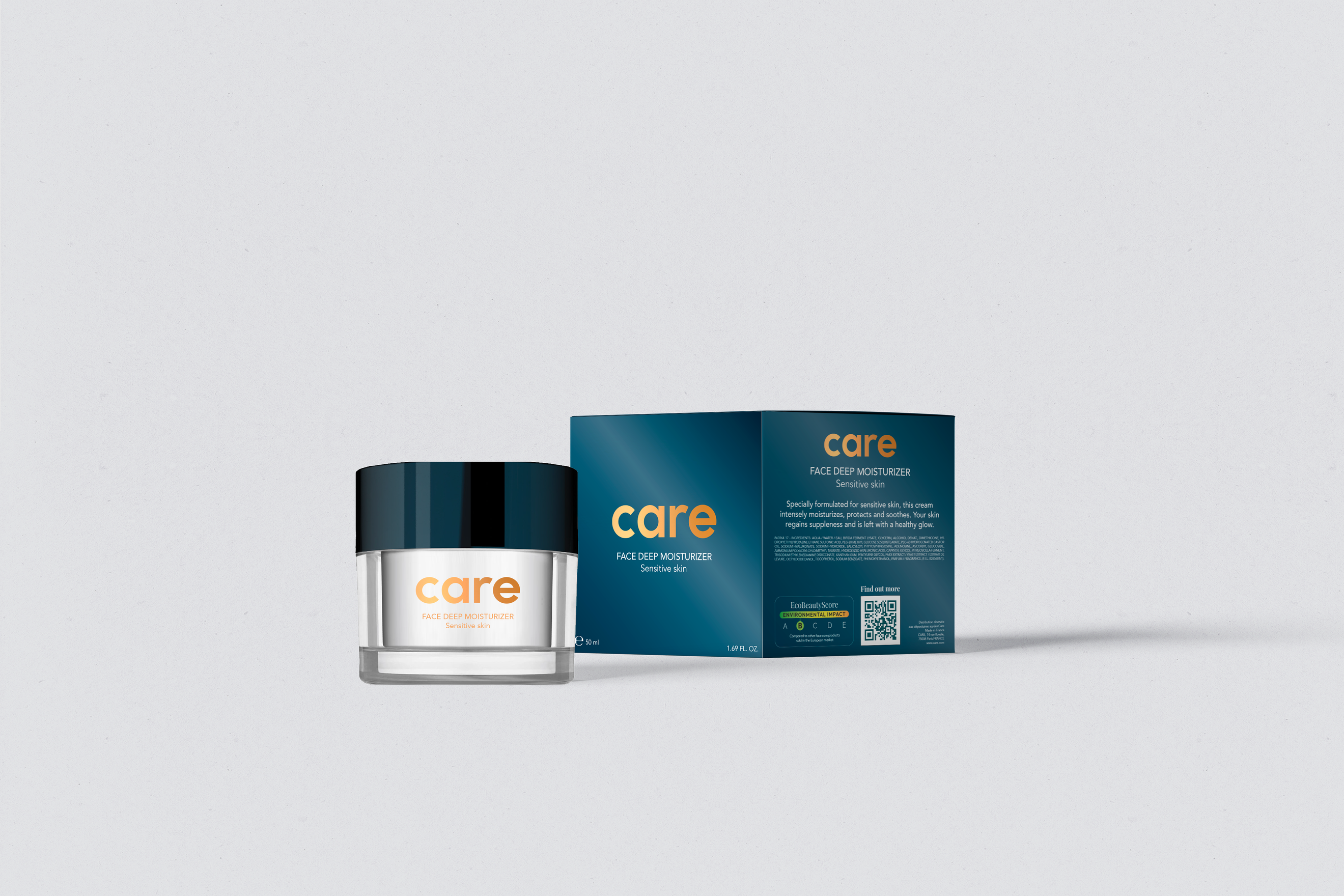
An eco-rating for beauty products to support more conscious consumption
The EcoBeautyScore, a not-for-profit organisation, has been developing a standardised, science-based environmental impact scoring system for cosmetic and personal care products over the past three years.
The EcoBeautyScore (EBS) aims to bring transparency, with easy-to-understand product scores similar to the Nutri-Score on food products in France or the Energy Rating for electronic goods in Europe. Independent experts in environmental science, law, technology, and consumer behaviour support the scoring. Current members of the industry organisation include Amorepacific, Beiersdorf, Chanel, Colgate-Palmolive, Douglas, Isdin or L'Occitane and L'Oréal, to name a few.
A new global benchmark for sustainable communication in beauty
In a recent survey conducted by the consortium, more than two-thirds1 of consumers across the four markets studied say the EcoBeautyScore label builds trust and that they intend to consider EcoBeautyScore when purchasing products.
The industry-wide environmental scoring system for cosmetics has been developed through collaboration with over 70 global manufacturers and trade associations. It is science-based, independently reviewed, and aligned with the EU’s environmental footprint methodology, covering 16 planetary impacts across the full product lifecycle (LCA), including climate change, ecotoxicity, water use, and resource use.
Supporting a savvy beauty consumer
The Beauty industry is often the target of anti-greenwashing influencers or campaigners due to a lack of transparency. Although the industry is working hard behind the scenes, its actions are frequently undermined. This new tool advocates for simplified information on the environmental impact of products, helping consumers make informed decisions when searching for greener beauty items.
In Europe in 2025, it is projected that consumers will spend more than $150 billion on beauty and personal care products, with demand for more sustainable options on the rise2. However, half of European consumers are sceptical of brands’ sustainability claims, suspecting they don’t accurately reflect the real environmental impact of products3.
“ The main goal of the not-for-profit EcoBeautyScore Association is to enable beauty lovers around the world to make more informed decisions and sustainable choices when purchasing their cosmetic products. Meanwhile, EcoBeautyScore aims to provide brands - no matter their size or sustainability expertise - with data-driven insights about the environmental impacts of their products in order to be able to reduce their footprint.” adds Jean-Baptiste Massignon.
The process evaluates a product’s impact on the environment across its entire lifecycle, analysing everything from ingredient sourcing and packaging materials to how a product is used and disposed of by the consumer. Ultimately, the EcoBeautyScore (EBS) rates products from A to E based on their impact on land, water, and air throughout the product's full lifecycle.
“EcoBeautyScore gives the beauty industry the transparency tool it has long been missing. For the first time, brands can communicate their environmental impact in a way that is science-based, consistent and easy for consumers to understand. Through a simple-to-use scoring platform, companies have access to a wealth of data about the environmental hotspots of their products, making it accessible for brands of all sizes, no matter their sustainability expertise.” Comments Jean-Baptiste Massignon, Managing Director of the EcoBeautyScore Association.
Shampoo, conditioner, body wash and face care products
After years of development and testing, the EcoBeautyScore system is now live, initially covering four product categories: shampoo, conditioner, body wash and face care products. It’s open to all cosmetics and personal care manufacturers, with early adopters already publishing scores and more expected in the coming months. The system is free to trial and comes with onboarding support for brands of all sizes. Launching first in Europe, it will gradually expand worldwide and cover the full range of beauty products.
"EcoBeautyScore is an industry standard designed to assess and score all products in the beauty and personal care market from mass market to premium and luxury segments. Indeed, we have members of the Association who are luxury brands, as well as mass market and those focused on natural formulations. Any manufacturer of finished cosmetic products can use the EcoBeautyScore platform, no matter their size or sustainability expertise," explains Massignon.
In late 2025, EcoBeautyScores will begin appearing on product packaging in select European markets as it actively expands its scope and develops new product categories, which are expected to launch in early 2026. As the EBS is a global initiative, it will roll out beyond Europe in the coming years.
The first brands, including L’Oréal Paris (L’Oréal), Neutrogena (Kenvue), Nivea Q10 (Beiersdorf) and Eucerin (Beiersdorf), are publishing their product scores in European markets such as the UK, France and Germany.
Encourage transparency
There are strict rules that any brand wishing to communicate its EcoBeautyScores must follow. This includes the requirement to publish at least 75% of a brand’s product scores across the full range of scores received, within a segment within a given country/market. This is designed to avoid brands ‘cherry-picking’ their best scores and only showing these to consumers.
The EcoBeautyScore Association also provides clear guidelines on how scores are presented, both online and on-pack, to ensure consistency and transparency across brands. Brands utilising the scoring system will be regularly audited and certified by an independent third-party organisation.
The EcoBeautyScore Association methodology was developed over a three-year period and reviewed and verified by an independent third party. The EcoBeautyScore methodology and platform were also reviewed and verified by E&H, the consulting branch of the Ecocert group, to ensure compliance with the principles of the European Commission’s PEF methodology and ISO norms 14020/14025.
Sources
1, 4 Ipsos study, Assessing Consumer Interest Best Design And Narrative EcoBeautyScore - 9,000 Adults in China, the US, France, Brazil, March 2023
2 Statista data, Beauty & Personal Care – Europe Market Insights, 2025
3 Euroconsumer survey, Fighting greenwashing: do it now and do it right, 2023

